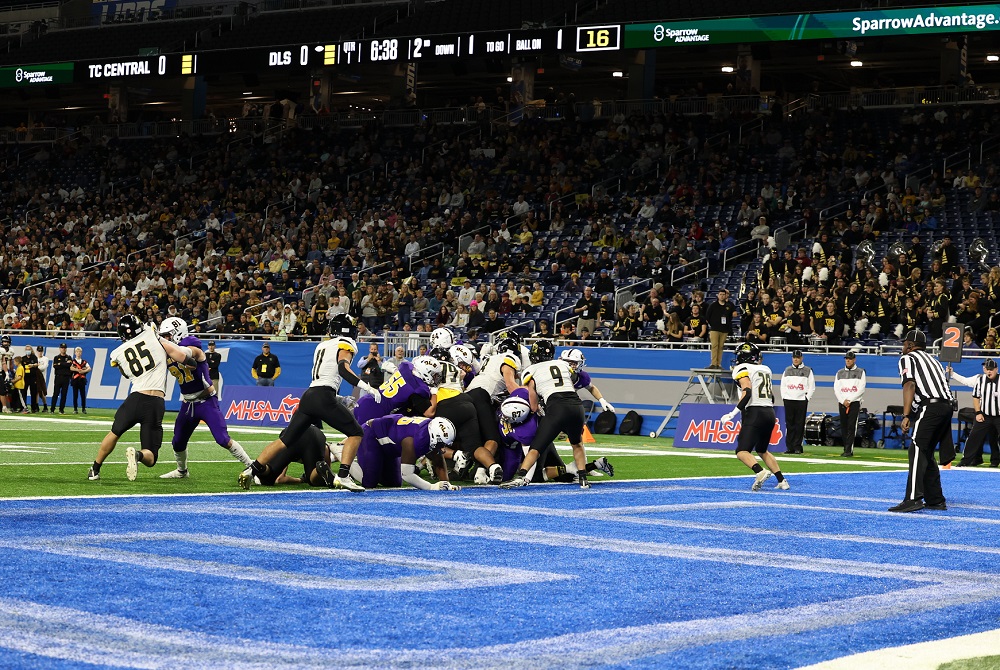
Be the Referee: Communication
December 17, 2015
This week, MHSAA assistant director Mark Uyl explains the expectations for officials working with coaches during basketball games.
Be The Referee is a series of short messages designed to help educate people on the rules of different sports, to help them better understand the art of officiating, and to recruit officials.
Below is this week's segment - Basketball Communication - Listen
The most challenging task in officiating any basketball game for referees is effectively working with coaches. In a perfect world, coaches would simply ask questions on plays they had questions or concerns about and the official would simply respond with a description of what he or she saw on the play.
The very best basketball officials keep the communication with coaches during a game a conversation, not an ongoing argument. Officials need to always be in control of their emotions, answer questions from coaches honestly and head off behavior early that is argumentative and unprofessional. Coaches and officials working together makes for a much better game as everyone in the gym – players, media members and spectators – take their cues for how coaches are acting. When coaches are professional with officials, the entire atmosphere is so much more positive.
Past editions:
Dec. 10: Basketball Excessive Contact - Listen
Nov. 26: Pregame Communication - Listen
Nov. 19: Trick Plays - Listen
Nov. 12: 7-Person Football Mechanics - Listen
Nov. 5: Make the Call: Personal Fouls - Listen
Oct. 29: Officials Demographics - Listen
Oct. 15: Make the Call: Intentional Grounding - Listen
Oct. 8: Playoff Selection - Listen
Oct. 1: Kick Returns - Listen
Sept. 24: Concussions - Listen
Sept. 17: Automatic First Downs - Listen
Sept. 10: Correcting a Down - Listen
Sept 3: Spearing - Listen
Aug. 27: Missed Field Goal - Listen

Be The Referee: Play Clock
By
Sam Davis
MHSAA Director of Officials
August 30, 2022
Be The Referee is a series of short messages designed to help educate people on the rules of different sports, to help them better understand the art of officiating, and to recruit officials.
Below is this week's segment – Play Clock - Listen
There’s a new rule in football this year that provides the offense more time to draw up a play and prepare matchups when the defense commits a foul.
In the past, if the defense committed a foul, the play clock would be set to 25 seconds, potentially changing the approach by the offense entirely.
Under the change, when the defense or receiving team commits a foul, the play clock will start at 40 seconds, giving the offense an extra 15 seconds to prepare their scheme for the next play.
For all other administrative stoppages, including fouls against the offense or kicking team, the play clock will be set to 25 seconds when play resumes.
Previous Editions:
Aug. 23: Intentional Grounding Change - Listen

